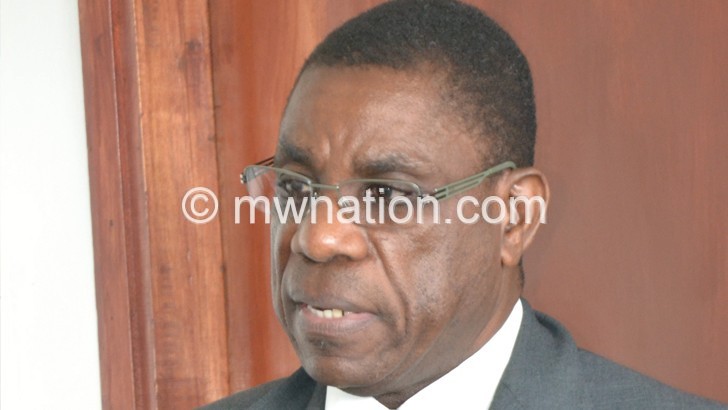Positive prospects for 2022 were dealt a blow during the year by the Russia-Ukraine war, which has affected most countries in the world, including Malawi after disrupting global supply chains for key commodities.
At the start of the 2022/23 financial year in April, Ministry of Finance and Economic Affairs’ main focus was on recovering the economy from the global slowdown caused by the Covid-19 pandemic.
The ministry was optimistic that the global supply chain may begin to normalise to near pre-pandemic levels, thereby easing inflationary pressures due to the increase in the uptake of Covid-19 vaccines, which will continue to reduce the severity of the pandemic.
Resultantly, during the fiscal year, Treasury had projected the economy to register a growth of 4.1 percent, annual inflation rate to average 9.1 percent and a policy rate at 12 percent.

However, mid into the 2022/23 fiscal year, the International Monetary Fund (IMF), in its October 2022 World Economic Outlook, indicated that global economic activity was experiencing a broad-based and sharper-than-expected slowdown, with inflation higher than seen anywhere else in several decades.
The cost of living crisis, tightening financial conditions in most regions, Russia’s invasion of Ukraine and the negative impacts of Covid-19 pandemic all weighed heavily on the outlook of the global economy.
In view of the changing landscape, the IMF projected global growth to slow down from six percent in 2021 to 3.2 percent in 2022, the weakest growth profile since 2001 except for the global financial crisis and the acute phase of the Covid-19 pandemic.
On the other hand, global inflation was forecast to rise from 4.7 percent in 2021 to 8.8 percent in 2022 while monetary policy was expected to stay the course to restore price stability.
Following the global trends, Ministry of Finance and Economic Affairs revised upwards its 2022 annual inflation target to 21.5 percent from 9.3 percent registered in 2021.
On the other hand, the policy rate has been adjusted to 18 percent from 14 percent, which prevailed since the start of the fiscal year.
Growth projection has also been revised downwards to 1.7 percent.
Minister of Finance and Economic Affairs Sosten Gwengwe indicated that apart from the global economic downturn, growth in Malawi has been further hampered by Cyclone Ana, which damaged Kapichira Hydro Power Station, taking 130 megawatts off the national power grid.
He said: “This has heavily affected economic activity especially in the manufacturing sector.
“Going forward, growth prospects remain positive due to the planned restoration of the Kapichira Hydro Power Station and the agriculture commercialisation drive.”
Recently, the World Bank also pointed out that recovery from the Covid-19 pandemic continues to be hampered by the sustained impacts of cyclones in early 2022 as well as persistent economic imbalances.
In its December 2022 Malawi Economic Monitor, the World Bank observed that a full recovery of the economy to a pre-Covid-19 growth path is not expected in the near-term.
Reads the report in part: “Prolonged foreign exchange shortages can have severe and long-lasting effects on the real economy.
“Businesses have to forego potentially profitable investment opportunities because imported investment items are unavailable, limiting economic growth in the medium-term. Inflation is expected to remain high.”
According to the bank, a lack of sustained economic growth, projected at 0.9 percent in 2022, along with the continuous inflationary pressures and recurrent weather shocks, will make it more difficult for Malawi to find a way to reduce poverty.
This, the bank said, could result in people living on less than $2.15 (about K2 300) per day remaining at 71 percent in 2022 and 2023, with further external shocks resulting in increased poverty rates and push more people into food insecurity.
In addition to rising inflation, the bank said, there is a possibility of energy prices rising, which will increase electricity prices and further strain the costs of production.
Speaking in an interview, economist Bond Mtembezeka said the poor performance of the agriculture sector and foreign exchange challenges does not make the economic outlook encouraging.
He said: “Firstly, we are a predominantly agriculture country and it does not seem that Affordable Inputs Programme will perform well this year and that will be the second year in a row.
“Secondly, the foreign exchange issue is still on and all sustainable interventions are medium to long-term.”
Mtembezeka said Malawi is battling economic issues almost on all fronts, adding that is a serious cause for concern.”
Consumers Association of Malawi executive director John Kapito fears for the survival of the consumers amid rising inflation and continued global supply chain disruptions which are exacerbating the cost of living crisis.


